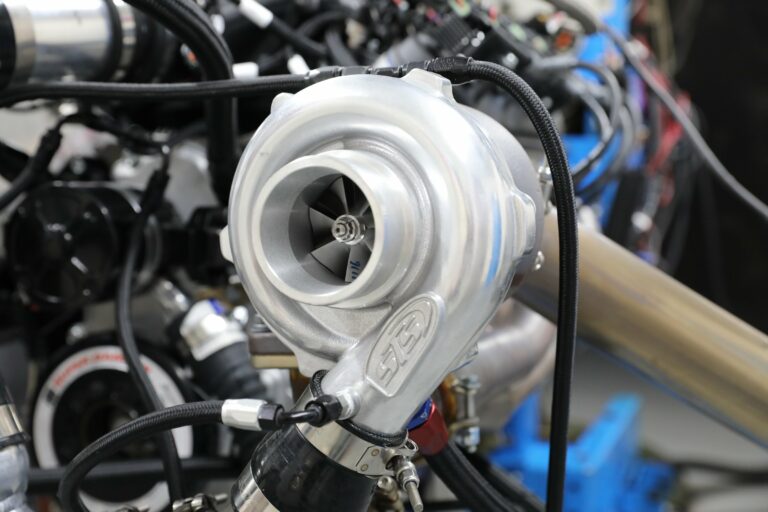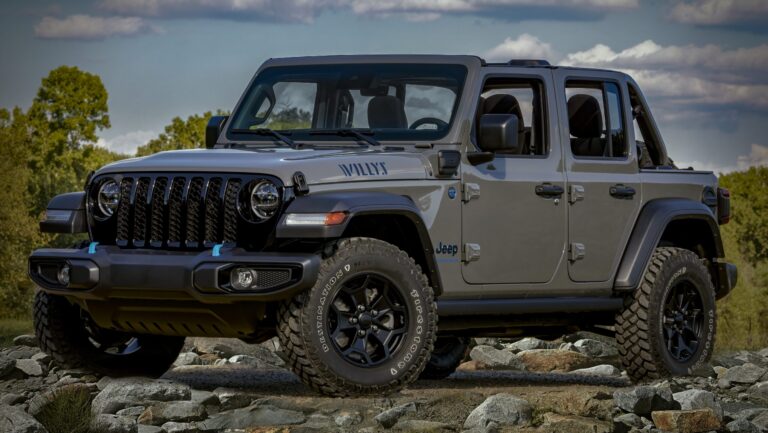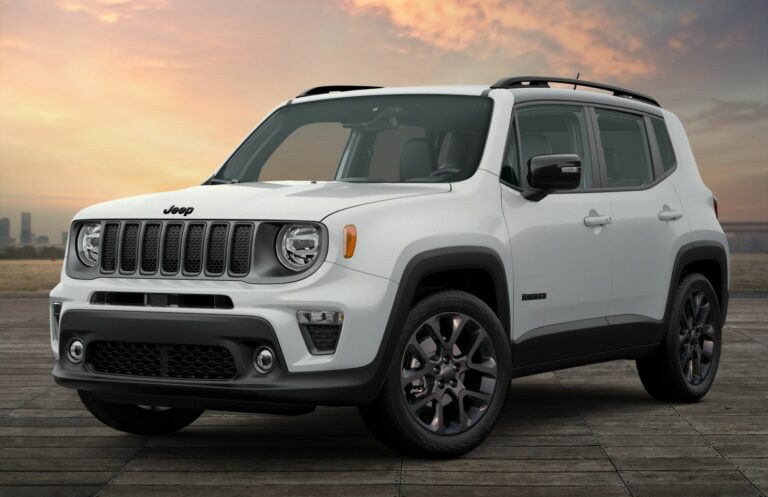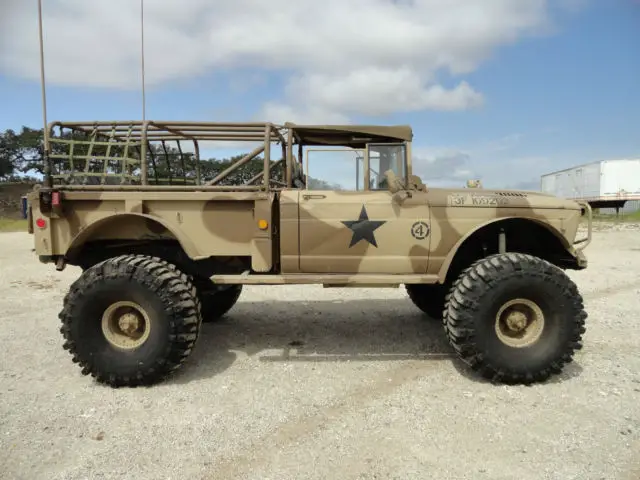2001 Jeep Wrangler Transmission For Sale: Your Comprehensive Guide
2001 Jeep Wrangler Transmission For Sale: Your Comprehensive Guide jeeps.truckstrend.com
The 2001 Jeep Wrangler, a true icon of off-road prowess and rugged individuality, holds a special place in the hearts of automotive enthusiasts. Its legendary capability, compact size, and timeless design make it a highly sought-after vehicle, even two decades after its production. However, like any machine, the components of a 2001 Jeep Wrangler are subject to wear and tear, and one of the most critical – and often most expensive – components to address is the transmission. If you own a 2001 Jeep Wrangler and are experiencing transmission issues, or are simply looking to understand your options, this comprehensive guide to "2001 Jeep Wrangler Transmission For Sale" will provide you with all the essential information you need to make an informed decision.
Understanding the 2001 Jeep Wrangler Transmission
2001 Jeep Wrangler Transmission For Sale: Your Comprehensive Guide
Before diving into the market for a replacement, it’s crucial to understand the types of transmissions originally offered in the 2001 Jeep Wrangler. This year model, part of the TJ generation, came with two engine options, each paired with specific manual and automatic transmission choices:
- 2.5L Inline-4 Engine:
- Manual Transmission: Aisin AX-5 (5-speed manual)
- Automatic Transmission: Chrysler 30RH (3-speed automatic)
- 4.0L Inline-6 Engine:

- Manual Transmission: New Venture Gear NV3550 (5-speed manual)
- Automatic Transmission: Chrysler 32RH (3-speed automatic)
It is absolutely paramount that you identify which engine your 2001 Jeep Wrangler has, as the transmissions are not interchangeable between the 2.5L and 4.0L engines. Furthermore, all 2001 Jeep Wranglers came with a four-wheel-drive (4WD) system, meaning the transmission will be designed to mate with a transfer case.
Why Replace Your 2001 Jeep Wrangler Transmission?
Transmissions are complex mechanical systems that, over time, can succumb to various issues. For a 2001 Jeep Wrangler, which often sees demanding use both on and off-road, these issues can arise sooner than expected. Common signs that your transmission might be failing include:
- Slipping Gears: The engine revs, but the vehicle doesn’t accelerate as it should, or the transmission struggles to stay in gear.
- Harsh Shifting: Clunking, jerking, or delayed shifts, especially noticeable in automatic transmissions.
- Unusual Noises: Whining, grinding, or humming sounds coming from the transmission area.
- Leaking Fluid: Reddish or brownish fluid puddles under the vehicle. Low fluid levels can lead to overheating and component damage.
- Burning Smell: Overheated transmission fluid can emit a distinct burning odor.
- Check Engine Light/Transmission Warning Light: Modern vehicles have sensors that can trigger dashboard warnings for transmission issues.
- Loss of Power or No Engagement: The vehicle simply won’t move, or struggles to maintain speed.
Replacing a failing transmission can breathe new life into your beloved Jeep, restoring its performance, reliability, and ensuring you can continue enjoying its legendary capabilities for years to come.
Types of 2001 Jeep Wrangler Transmissions Available For Sale
When searching for a "2001 Jeep Wrangler Transmission For Sale," you’ll encounter several categories, each with its own advantages and disadvantages:
1. New Transmissions (OEM or Aftermarket)
- Description: These are brand-new units, either from the original equipment manufacturer (OEM) or reputable aftermarket manufacturers.
- Pros: Zero mileage, comes with a comprehensive warranty (often 1-3 years), latest design improvements (if any), and peace of mind.
- Cons: Most expensive option. Finding a brand-new OEM transmission for a 2001 model can be challenging, as they are no longer in production. Aftermarket options are more common.
- Best For: Those seeking maximum reliability and longevity, and willing to pay a premium.
2. Remanufactured/Rebuilt Transmissions
- Description: These transmissions have been completely disassembled, inspected, cleaned, and had all worn or damaged components (clutches, seals, bearings, solenoids, etc.) replaced with new or reconditioned parts. They are then tested to meet or exceed OEM specifications. "Remanufactured" often implies a more stringent process, including updates to known weak points.
- Pros: Significantly more affordable than new, comes with a warranty (often 6 months to 2 years), offers excellent reliability, and is an environmentally friendly option.
- Cons: Still a significant investment. Quality can vary between rebuilders/remanufacturers.
- Best For: Most owners looking for a balance of cost, reliability, and warranty. This is often the sweet spot.
3. Used/Salvage Transmissions
- Description: These are transmissions pulled from donor vehicles (e.g., salvage yards, wrecked Jeeps). They are sold "as-is" with varying mileage.
- Pros: Cheapest option upfront. Can be a quick solution if you find one locally.
- Cons: No guarantee of condition or remaining lifespan. Often comes with little to no warranty (e.g., 30-90 days, or none at all). You’re buying a known unknown.
- Best For: Those on a very tight budget, or for project vehicles where the transmission is a temporary placeholder. Requires careful inspection and a willingness to take a risk.
Where to Find a 2001 Jeep Wrangler Transmission For Sale
The market for used and remanufactured auto parts is vast. Here are the primary places to look:
- Online Specialty Retailers: Many companies specialize in selling remanufactured transmissions online (e.g., Powertrain Products, Street Smart Transmission, various Jeep parts sites). They often ship nationwide.
- Local Auto Parts Stores: Some larger chains can order remanufactured units or connect you with suppliers.
- Salvage Yards/Junk Yards: Excellent for finding used transmissions. You might need to pull it yourself or pay a fee for them to do it. Always inquire about the donor vehicle’s mileage and accident history.
- Online Marketplaces: Websites like eBay, Craigslist, Facebook Marketplace, and dedicated Jeep forums can have listings from individuals or smaller shops. Exercise caution and verify sellers’ reputations.
- Local Mechanics/Transmission Shops: They often have connections to suppliers of new, remanufactured, and sometimes used units, and can handle the installation.
Key Considerations When Buying a 2001 Jeep Wrangler Transmission
Making the right choice requires careful consideration of several factors:
- Compatibility is King: Reiterate checking your VIN or door jamb sticker to confirm your engine (2.5L or 4.0L) and original transmission type (AX-5, NV3550, 30RH, 32RH). A manual transmission cannot replace an automatic, and vice-versa, without significant modifications.
- Warranty: Always prioritize sellers who offer a comprehensive warranty, especially for remanufactured units. Understand what the warranty covers (parts, labor, duration) and what voids it.
- Seller Reputation: Research the seller. Look for online reviews, testimonials, and how long they’ve been in business. For used parts, ask about the donor vehicle’s history.
- Mileage (for Used): For used transmissions, lower mileage is generally better. Ask for proof of mileage (e.g., from the donor vehicle’s odometer).
- Fluid and Filter: Regardless of the transmission type you buy, plan to replace the transmission fluid and filter (if applicable) immediately after installation.
- Torque Converter (for Automatics): If buying an automatic, ensure it comes with a matching torque converter, or factor in the cost of a new one. A mismatched or failing torque converter can quickly damage a new transmission.
- Shipping and Core Charges: Factor in shipping costs if buying online. Many remanufactured units have a "core charge" which is refunded when you return your old transmission.
The Buying Process: A Step-by-Step Guide
- Diagnose Thoroughly: Before buying, get a definitive diagnosis from a trusted mechanic that your transmission is indeed the problem.
- Identify Your Transmission: Confirm your engine type and current transmission model.
- Set Your Budget: Determine how much you’re willing to spend, considering new, remanufactured, or used options.
- Research Sellers: Compare prices, warranties, and reviews from multiple sources.
- Ask Questions: For remanufactured units, ask about the rebuilding process, what parts are replaced, and the testing procedures. For used units, ask about the donor vehicle, mileage, and any known issues.
- Verify Compatibility: Double-check part numbers or provide your VIN to the seller to ensure compatibility.
- Understand Warranty and Returns: Read the fine print on warranties and return policies.
- Arrange Shipping/Pickup: Coordinate delivery or pickup. If picking up, inspect the unit for external damage.
Installation: DIY vs. Professional
Replacing a transmission is a complex and heavy job that requires specialized tools and expertise.
- DIY: Possible only if you have extensive automotive experience, the right tools (including a transmission jack), a suitable workspace, and an assistant. This can save on labor costs but carries risks if done incorrectly.
- Professional Installation: Highly recommended for most owners. A reputable mechanic or transmission shop has the experience, equipment, and insurance to perform the job correctly. They can also offer a warranty on their labor.
Maintaining Your New/Replacement Transmission
Once your 2001 Jeep Wrangler has a new or replacement transmission, proper maintenance is key to its longevity:
- Regular Fluid and Filter Changes: Follow the manufacturer’s recommended service intervals for transmission fluid and filter changes. Use the correct type of fluid.
- Avoid Overheating: Overheating is a transmission’s worst enemy. Ensure your cooling system is in good shape, especially if you tow or do heavy off-roading. Consider an auxiliary transmission cooler.
- Check for Leaks: Periodically inspect for any signs of fluid leaks.
- Drive Responsibly: Avoid aggressive driving, excessive towing beyond capacity, or prolonged high-stress situations that can strain the transmission.
- Address Issues Promptly: If you notice any new strange noises, smells, or shifting issues, get them checked out immediately.
Price Table for 2001 Jeep Wrangler Transmission For Sale
Please note that these are estimated price ranges and can vary significantly based on seller, warranty, mileage (for used), and current market demand. Installation costs are not included.
| Transmission Type | Engine Type | Estimated Price Range (USD) | Key Features/Notes |
|---|---|---|---|
| Used/Salvage | 2.5L Manual | $300 – $800 | Cheapest option; mileage and condition vary greatly; minimal or no warranty. |
| Used/Salvage | 2.5L Auto | $400 – $900 | Cheapest option; mileage and condition vary greatly; minimal or no warranty. |
| Used/Salvage | 4.0L Manual | $400 – $1,000 | Cheapest option; mileage and condition vary greatly; minimal or no warranty. |
| Used/Salvage | 4.0L Auto | $500 – $1,200 | Cheapest option; mileage and condition vary greatly; minimal or no warranty. |
| Remanufactured/Rebuilt | 2.5L Manual | $1,200 – $2,000 | Fully reconditioned; typically includes 6-24 month warranty; often requires core return. |
| Remanufactured/Rebuilt | 2.5L Auto | $1,300 – $2,200 | Fully reconditioned; typically includes 6-24 month warranty; often requires core return. |
| Remanufactured/Rebuilt | 4.0L Manual | $1,400 – $2,500 | Fully reconditioned; typically includes 6-24 month warranty; often requires core return. |
| Remanufactured/Rebuilt | 4.0L Auto | $1,500 – $2,800 | Fully reconditioned; typically includes 6-24 month warranty; often requires core return. |
| New Aftermarket | All Types | $2,000 – $3,500+ | Brand new, potentially with upgrades; longer warranties; availability may vary. |
Note: Prices do not include shipping, core charges (if applicable), or installation labor.
Frequently Asked Questions (FAQ) about 2001 Jeep Wrangler Transmissions
Q1: How long does a 2001 Jeep Wrangler transmission typically last?
A1: With proper maintenance, a 2001 Jeep Wrangler transmission (manual or automatic) can last anywhere from 100,000 to 200,000 miles or more. However, heavy off-road use, lack of maintenance, or aggressive driving can significantly shorten its lifespan.
Q2: What’s the difference between a "rebuilt" and a "remanufactured" transmission?
A2: While often used interchangeably, "remanufactured" generally implies a more thorough process. A rebuilt transmission typically replaces only the worn parts. A remanufactured transmission is fully disassembled, all wear components are replaced with new or re-machined parts, and often includes updates to address original design flaws, making it closer to a new unit in quality.
Q3: Can I swap a manual transmission for an automatic, or vice-versa, in my 2001 Jeep Wrangler?
A3: While technically possible, it is an extremely complex and expensive undertaking. It would require changing the transmission, transfer case, driveshafts, computer (PCM), wiring harness, pedal assembly, shifter, and potentially the steering column and dash components. It’s generally not practical or cost-effective for most owners.
Q4: Do I need a new torque converter with a replacement automatic transmission?
A4: Yes, it is highly recommended to replace the torque converter whenever you replace an automatic transmission. A failing or contaminated old torque converter can quickly damage a new or remanufactured transmission, and most warranties will be voided if a new torque converter isn’t used.
Q5: How can I tell if my 2001 Jeep Wrangler has a 2.5L or 4.0L engine?
A5: You can check your vehicle’s VIN (Vehicle Identification Number) located on the driver’s side dashboard or door jamb sticker. The 8th digit of the VIN typically indicates the engine type. Alternatively, the 4.0L engine is an Inline-6, which is noticeably longer than the 2.5L Inline-4. The engine size is also usually printed on the air filter box or valve cover.
Conclusion
Finding the right "2001 Jeep Wrangler Transmission For Sale" is a critical step in keeping your iconic vehicle on the road and ready for adventure. Whether you opt for a budget-friendly used unit, a reliable remanufactured option, or a brand-new aftermarket transmission, thorough research, careful consideration of compatibility and warranty, and professional installation are paramount. By understanding your options and making an informed decision, you can ensure your 2001 Jeep Wrangler continues to deliver the legendary performance and rugged reliability it’s known for, allowing you to conquer trails and turn heads for many years to come.






